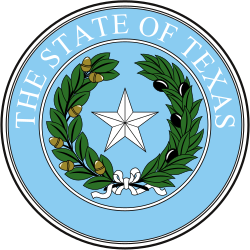There were two new members of the Senate.
Notable races
District 10: The Democratic Party ran City Councilwoman Wendy Davis against Republican and Sunset Advisory Commission chairperson Kim Brimer. The district had been Republican-leaning, having been won by George W. Bush in 2004 and by Governor Rick Perry in 2002 and 2006. Davis won that race with 49.91% of the vote. In 2014, she was the Democratic nominee for governor to succeed Perry.
District 11: The Democrats ran former Galveston city council member Joseph Jaworski against Republican candidate Mike Jackson. The district encompasses the southeast Houston suburbs and part of Galveston County that has consistently voted for Republicans including George W. Bush in 2004, Governor Perry in 2002 and 2006, and U.S. Senator John Cornyn in 2002. Mike Jackson won that race with 56.48% of the vote.
District 17: The Incumbent Republican Kyle Janek announced he would be resigning from the State Senate effective June 2, 2008 to spend more time with his family, who had moved to Austin. A special election was called and was held concurrently with the general election. 4 Republicans and 2 Democrats ran for the unexpired term, most notably, the Republican Party's Joan Huffman, and Democratic former U.S. Representative Christopher Bell, the party's 2006 nominee for governor. Huffman and Bell advanced to a runoff, [4] held December 16, 2008. Huffman won that race with 56% of the vote. [5]
District 21: Democratic candidate Judith Zaffirini prevailed in her historically Democratic state Senate seat, which includes Laredo. The seat was held from 1967 to 1973 by her mentor, Wayne Connally, a younger brother of John Connally. Republicans fielded former Webb County administrative judge Louis Henry Bruni (born 1949), who switched parties in December 2007 to run against Zaffirini. The district voted for George W. Bush in 2004 and Kay Bailey Hutchison in 2006 but for Democratic gubernatorial candidate Chris Bell in 2006.


